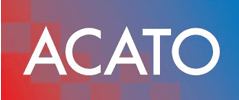Key Factors for Selecting an ISO 27001 Certification Body

How to Choose the Right ISO 27001 Certification Body: Key Criteria and Selection Guide
Choosing the right ISO 27001 certification body is critical for demonstrating robust information security through a recognized audit process. Organizations seeking ISO 27001 certification must balance accreditation, industry expertise, auditor competence, cost transparency, and reputation to ensure their Information Security Management System (ISMS) stands up to regulatory and stakeholder scrutiny. This guide explains why accreditation matters, outlines essential selection criteria, explores how the certification process influences your choice, highlights common pitfalls, and provides a step-by-step action plan to secure the best auditor for your ISO 27001 journey.
Why Is Choosing an Accredited ISO 27001 Certification Body Important?
Accreditation ensures a certification body operates under ISO/IEC 17021 standards, validating its competence, impartiality, and consistency—key factors that lend international credibility to your ISO 27001 certificate.
[1] ISO/IEC 17021-1:2015, Conformity assessment — Requirements for bodies providing audit and certification of management systems (2015)
Understanding accreditation clarifies which audit reports are accepted by regulators and customers, setting the stage for selecting bodies with recognized authority.
What Does Accreditation Mean for ISO 27001 Certification?

Accreditation is a formal recognition by a national authority that a certification body meets stringent management-system auditing requirements. This endorsement confirms the body’s auditors follow documented procedures, use qualified personnel, and maintain impartiality, which directly enhances the trust stakeholders place in your ISMS validation. Understanding this foundation prepares you to compare different accreditation schemes.
How Do UKAS, ANAB, and IAF Accreditation Bodies Differ?
Accreditation schemes vary by jurisdiction, scope, and international agreements. The table below compares the key characteristics:
| Accreditation Body | Jurisdiction | Recognition Scope |
|---|---|---|
| UKAS | United Kingdom | IAF multilaterals, EU-recognized |
| ANAB | United States | IAF accepted, ANSI oversight |
| IAF (MLA signatory) | Global | Mutual recognition among members |
Each body grants accreditation under ISO/IEC 17021, but national oversight and peer evaluation processes differ slightly. Choosing a body recognized by the IAF multilateral agreement ensures your certificate has broad international acceptance, leading us to explore how accreditation impacts credibility.
How Does Accreditation Impact Certificate Credibility and Recognition?
An accredited certification body issues ISO 27001 certificates that are widely trusted by governments, supply-chain partners, and regulatory agencies. This mutual recognition minimizes audit redundancies and facilitates cross-border compliance. Ensuring your chosen body holds accreditation from a reputable authority directly supports customer confidence and smooth market access.
The Ultimate Guide to Choosing the Right ISO 27001 Certification Body

Selecting the best certifier requires verifying accreditation status, evaluating sector expertise, assessing auditor qualifications, comparing total cost, and reviewing past performance. Each factor contributes to an effective audit and a lasting partnership that drives continual ISMS improvement.
How to Verify the Accreditation Status of a Certification Body?
Begin by consulting the official directories of national accreditation bodies (e.g., UKAS or ANAB) to confirm the certification body’s scope, valid dates, and ISO 27001 authorization. A clearly published certificate number, scope of services, and a current listing signal genuine accreditation and reduce the risk of invalid certification.
Why Is Industry Expertise and Specialization Critical?
A certification body with experience in your sector—such as finance, healthcare, or cloud services—understands unique regulatory controls and risk scenarios. This specialization promotes more efficient audits, relevant feedback, and targeted guidance, which ultimately accelerates certification and enhances ISMS effectiveness.
What Auditor Qualifications and Approach Should You Look For?
Qualified auditors hold information security credentials (e.g., Lead Auditor, CISSP) and demonstrate practical ISMS implementation experience. Look for auditors who communicate clearly, provide constructive findings, and offer actionable recommendations. Their interpersonal skills influence audit readiness and collaborative improvement cycles.
How to Evaluate Cost and Value for Money Beyond Price?
Cost transparency covers audit fees, travel expenses, and re-audit charges. Compare total package values rather than hourly rates to uncover hidden fees. A body offering bundled surveillance audits, remote assessment options, and flexible schedules often delivers the best long-term return on investment.
How to Assess Reputation and Client References?
Client testimonials, case studies, and independent reviews reveal a body’s reliability, responsiveness, and success rates. Seek references from organizations of similar size or complexity to gauge audit rigor and follow-up support. Positive feedback correlates strongly with smoother certification journeys.
How Does the ISO 27001 Certification Process Influence Your Choice of Certification Body?
The structure and support a certification body provides across audit stages can significantly affect cost, time-to-certification, and the value derived from the audit.
What Are the Key Stages of the ISO 27001 Audit Process?
The audit unfolds in three phases:
- Stage 1 (Documentation Review) – Verifies your ISMS scope and readiness.
- Stage 2 (On-site Audit) – Assesses implementation of controls and risk management.
- Surveillance Audits – Annual reviews ensure ongoing compliance and continuous improvement.
[2] ISO/IEC 27001:2022, Information security, cybersecurity and privacy protection — Information security management systems — Requirements (2022)
Clear scheduling and consistent auditor assignments streamline each phase and reinforce process familiarity.
How Does a Certification Body Support Your ISMS Implementation and Audit Readiness?
Value-added services—such as pre-audit gap analyses, template libraries, and customized training—help organizations address nonconformities before formal audits. These advisory offerings reduce surprises during Stage 2 and embed best practices that support sustained ISMS maturity.
What Are Common Pitfalls to Avoid When Choosing an ISO 27001 Certification Body?
Missteps in selection can result in wasted budget, extended timelines, and certificates that fail to gain stakeholder acceptance.
Why Should You Avoid Selecting Solely Based on Price?
Focusing only on the lowest quote often bypasses accreditation checks, auditor expertise, and hidden costs. Underqualified bodies may conduct cursory audits that leave critical gaps, undermining your security posture and exposing the organization to regulatory risk.
What Risks Come from Ignoring Accreditation or Industry Fit?
Partnering with a non-accredited or irrelevant-expertise certifier jeopardizes certificate validity and stakeholder trust. Ignoring industry nuances can produce audit findings that lack practical relevance, delaying certification and reducing operational security benefits.
What Are the Next Steps in Selecting the Right ISO 27001 Certification Body?
A structured selection process guides you from need definition to formal proposal evaluation, ensuring an informed choice and optimal audit outcome.
How to Define Your Organization’s Certification Needs?
Map your ISMS scope, control objectives, regulatory obligations, and desired timeline. Establish internal resource availability, budget constraints, and risk appetite to align audit scope and certification goals with business priorities.
How to Research and Compare Accredited Certification Bodies?
Compile a short list of bodies accredited for ISO 27001. Use official directories and peer referrals to compare accreditation scope, sector specialization, audit approach, and value-added services. Narrow choices based on price transparency, reputation, and geographic reach.
How to Request and Evaluate Proposals from Certification Bodies?
Issue a concise Request for Proposal outlining your ISMS scope, audit stages, and support requirements. Evaluate responses on accreditation details, audit methodology, auditor profiles, total costs, and service guarantees. Select the proposal that best balances competence, credibility, and cost-effectiveness.
An informed selection process ensures your ISMS audit not only achieves certification but also drives long-term information security resilience.
Frequently Asked Questions
What is the typical timeline for obtaining ISO 27001 certification?
The timeline for achieving ISO 27001 certification can vary significantly based on the organization’s size, complexity, and readiness. Generally, the process can take anywhere from three to six months. This includes the time needed for preparing the Information Security Management System (ISMS), conducting internal audits, and addressing any nonconformities before the formal audit. Organizations that are well-prepared and have a clear understanding of the requirements may achieve certification more quickly, while those needing more extensive adjustments may take longer.
How often do organizations need to undergo surveillance audits after certification?
After obtaining ISO 27001 certification, organizations are required to undergo surveillance audits at least once a year. These audits are essential for ensuring ongoing compliance with the standard and for identifying areas for continuous improvement within the ISMS. The frequency and depth of these audits can vary based on the certification body’s policies and the organization’s specific circumstances, but annual reviews are standard practice to maintain certification status.
Can organizations lose their ISO 27001 certification? If so, how?
Yes, organizations can lose their ISO 27001 certification if they fail to maintain compliance with the standard’s requirements. This can occur due to significant nonconformities identified during surveillance audits, failure to address corrective actions, or if the organization does not undergo the required audits within the specified timeframe. Additionally, if an organization undergoes significant changes in its operations or management that affect its ISMS, it may also risk losing certification if these changes are not adequately managed.
What role does employee training play in achieving ISO 27001 certification?
Employee training is a critical component of achieving ISO 27001 certification, as it ensures that all staff members understand their roles and responsibilities regarding information security. Effective training programs help employees recognize potential security threats, understand the importance of compliance, and follow established procedures. By fostering a culture of security awareness, organizations can enhance their ISMS and reduce the likelihood of breaches, which is essential for both certification and ongoing compliance.
How can organizations prepare for the ISO 27001 certification audit?
Organizations can prepare for the ISO 27001 certification audit by conducting a thorough internal audit to identify and address any nonconformities in their ISMS. Additionally, they should ensure that all documentation is complete and up-to-date, including policies, procedures, and records of training. Engaging in pre-audit gap analyses and utilizing checklists can also help organizations identify areas needing improvement. Finally, fostering open communication among team members about the audit process can enhance readiness and confidence.
What are the benefits of ISO 27001 certification beyond compliance?
Beyond compliance, ISO 27001 certification offers numerous benefits, including enhanced reputation and credibility with clients and stakeholders, improved risk management, and increased operational efficiency. It demonstrates a commitment to information security, which can lead to greater customer trust and competitive advantage. Additionally, the certification process often uncovers inefficiencies and areas for improvement within the organization, leading to better resource allocation and overall business performance.
Conclusion
Choosing the right ISO 27001 certification body is essential for ensuring your organization’s information security management system is robust and credible. By prioritizing accreditation, industry expertise, and auditor qualifications, you can enhance your compliance and stakeholder trust. Take the next step towards securing your certification by researching accredited bodies that align with your specific needs. Explore our resources to guide you through the selection process and achieve lasting information security resilience.
